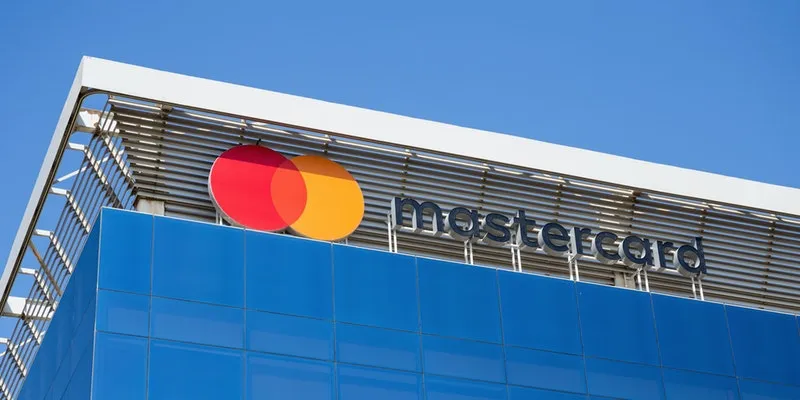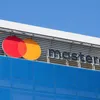How Mastercard is helping MSMEs push towards digital payments amidst COVID-19
Mastercard is seeking to leverage its network, insights, technology, and partnerships to help Indian MSMEs quickly adapt to a new way of operating digitally, committing Rs 250 crore over the next five years.
As MSMEs in India struggle to revive from the effects of COVID-19 and the subsequent lockdown, stakeholders in the ecosystem are pushing for digitising small businesses. Consumer behaviour is shifting online and customers are increasingly relying on digital platforms for groceries, education, and other essentials. And so, it has become critical to enable digital, contactless payments.
In an exclusive interaction with SMBStory, Vikas Varma, COO, South Asia, Mastercard, says, “With changing consumer mindsets, online shopping and contactless transactions have become imperative for businesses.”
He adds that a recent Mastercard study found that 49 percent of Indian consumers are planning to make more purchases online while and 68 percent of consumers think that reduced in-store shopping is here to stay.
The US-based financial services corporation is now seeking to leverage its network, insights, technology and partnerships to help Indian MSMEs enterprises sustain business and quickly adapt to a new way of operating digitally. In India, it is committing Rs 250 crore over the next five years to help reboot and energise MSMEs.

Vikas Varma, COO, South Asia, Mastercard
In an interaction, Vikas explains why digital has the potential to reshape and redefine successful growth for MSMEs, and what Mastercard is doing to tap into this opportunity.
Edited excerpts from the interview:
SMBStory [SMBS]: How has COVID-19 accelerated the process of digitisation for MSMEs?
Vikas Varma [VV]: As per estimates by the Confederation of All India Traders (CAIT), the pandemic will cause 20 percent of MSMEs to shut shop. The pandemic is also driving fast – and potentially permanent – shifts in consumer behaviour and small merchants will need to adjust to them accordingly to stay afloat. To adjust to these changes, brick-and-mortar shop owners are rushing to take their companies online.
Many are trying to learn ecommerce overnight, while others are figuring out logistics and operations to get their products in the hands of consumers – all with limited resources and the mounting pressure to turn things around quickly.
SMBS: What weaknesses were exposed in the MSME ecosystem due to COVID-19?
VV: MSMEs have historically faced challenges of limited access to credit, age old inefficient methods of operating business, slow adoption of new technologies, and restricted access to markets. This has limited their growth for decades. Their dependence on the cash-economy and supply chain disruptions made them amongst the worst affected from the pandemic.
Further, due to inadequate or a complete lack of technology adoption, SMEs don’t operate efficiently and manifest in clusters around either the source of their raw material and/or the units that they support.
This binds their dependency to a set number of customers and/or suppliers, leading to further inefficiencies and lack of opportunities. More critically, SMEs are unable to plug into global supply chain opportunities and are constrained by limited capital and knowledge.
Technology adoption can foster innovation, as well as help these enterprises manage their businesses digitally, accept e-payments, and allow them to compete globally, enabling them to manage the new norm we see in a post-COVID-19 world. Some analyses indicate that SMEs can increase revenue by 34 percent by adopting digital tools.
SMBS: What are the digital solutions that will become viable and valuable for MSMEs as they recover from the crisis?
VV: Through digitisation, MSMEs can come into the fold of the formal economy, enabling them to get access to formal credit and other financial services. It can help address the current credit gap by providing critical transactional and behavioural baseline data for digital financial service providers to extend loans, with easier access and at a lower cost.
This, in turn, will help them to grow their businesses and continue to provide employment, revenue, and growth for the nation.
Digital payments play an instrumental role and act as a strong stimulus for MSME business growth as they unlock cashflows – the single-most important factor for MSMEs to continue commerce – by addressing challenges in traditional processes through alternative approaches to sourcing, underwriting, and servicing.
I believe the adoption of digitisation can further uplift MSMEs and translate into several other benefits for them such as reduced accounting errors, less manual reconciliation, e-invoicing, etc, resulting in improved business efficiency.
Small businesses that have adopted digital payments have found it beneficial for their business’ growth. In fact, according to ‘Indian MSME Impact Report 2019’, nearly three-fourths of the respondents were very satisfied with their experience of digital payment products while more than half of the MSMEs, who responded to the survey, considered payment gateway solutions to be very valuable.
While the benefits of digitisation are clear, many MSMEs are still unbanked and outside the realm of the formal economy. The primary reason is a lack of awareness and unavailability of the right infrastructure.
We work closely with the industry and government to build awareness programmes on the adoption of digital payments and develop low-cost acceptance solutions specially designed to suit the needs of small businesses.

Mastercard is committing Rs 250 crore in India over the next five years to help reboot and energise MSMEs.
SMBS: What is the status of merchant acceptance currently? Why is there a need to boost it?
VV: In 2019, it was reported that 70 percent of Indian SMEs are offline. As per pre-COVID-19 estimates, 90 percent of all retail transactions are still in cash. While this has changed with the impact of the pandemic, many of these small businesses still depend on the traditional methods of doing business which is time-consuming, prone to human error, and most importantly impacts profit and productivity.
Digitally-engaged SMEs are more likely to grow their customer base as it makes them more accessible by the users. Recognising the potential of technology, Mastercard has expanded its worldwide commitment to financial inclusion by pledging to bring a total of one billion people and 50 million micro and small businesses into the digital economy by 2025.
We have been actively engaged with CAIT since the last five years to grow digital payments awareness, and support on-boarding of merchants for digital commerce. We are leveraging the popularity of our brand ambassador MS Dhoni and the Team Cashless campaign to reach out to the small merchant community (essential goods segment) and educate them on the benefits of digitisation.
SMBS: What are some other programmes/custom financial solutions offered by Mastercard for MSMEs?
VV: Besides our ongoing efforts in building awareness and driving adoption of digital payments, we have made investments in technological innovations to develop low-cost acceptance solutions and provide a suite of value-added services specially suited for the small merchants.
We are applying the highest levels of security and leveraging our latest mobile and AI tools to keep a track on COVID-19 related email phishing attempts and responding to pandemic-related cyber threats as and when needed. We have implemented multiple layers of protection to significantly reduce the risk of fraud as the number of digital transactions rises during the pandemic.
We recently launched a digital point-of-sale solution that allows merchants to accept payments through various digital form factors including Bharat QR, simply using their smartphones. This is the first such payment acceptance solution globally and it is made in India, for the world!
What this empowers is that any SME anywhere in the country can start accepting digital payments even if the current POS terminals aren’t available.
To further support the ease of doing business for small enterprises, we have partnered with and to offer other ‘Made in India’ acceptance solutions and value-added services. Together with CAIT, we have integrated the Mastercard Payment Gateway System (MPGS) with ‘bharatnet.in’ coupled with our technical expertise, support and analytics to deliver a better experience.
To support MSMEs to buy, operate, and sell more efficiently, we have partnered with – a 360-degree digital marketplace platform that helps MSMEs to connect and trade with a large network of buyers and suppliers, build their credit scores and gain access to financing and business services such as logistics.
In certain emerging markets, Mastercard has innovative applications that catalyse access to supply chain credit with key suppliers using SME purchase history. This credit ecosystem connects small retailers to FMCGs and enables access to short-term credit through sales data.
We also run programmes for education and awareness of women entrepreneurs to increase their business acumen. Under the programme training and basic technology education is imparted to women kirana owners, using BuddhiMoney, empowering them with ease of doing business, increased access to credit and market access.
Edited by Saheli Sen Gupta








